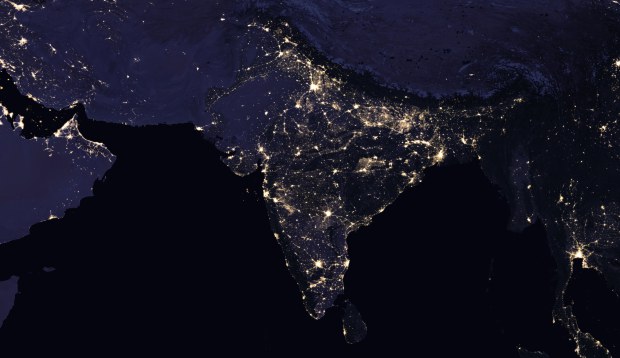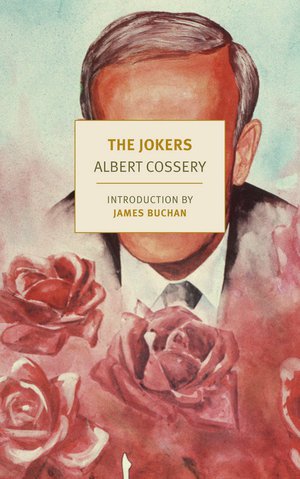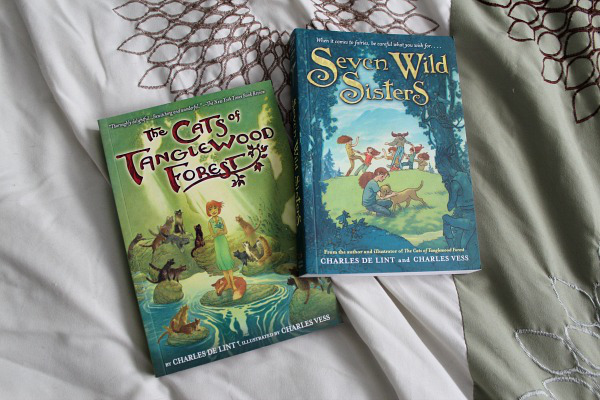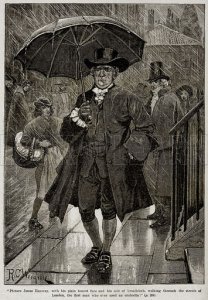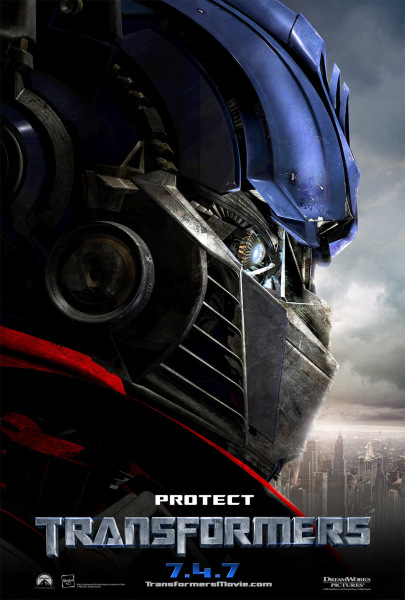
Transformers
Dir. Michael Bay
Premiered June 12, 2007
Nostalgia is a strange mistress.
It comes in two waves: first, the 20-year cycle, nostalgia for childhood that overcomes people when they become adults; then the 50-year cycle, nostalgia for a more distant past that’s perceived to have been more elegant. The 20-year cycle is the most frustrating. Lindsay Ellis once recalled having to take part in a Grease-themed pep rally in elementary school, saying “it seems like in the seventies, they really missed the fifties. But I remember in the late nineties there being this big resurgence of us missing the seventies missing the fifties,” both decades neither she nor her preadolescent classmates had ever lived through.
The 2000s were a decade in which I, and all of you, were subjected to almost every piece of forgettable kiddie ephemera that the 1980s had to offer. But even in a decade that remade The Dukes of Hazzard, Transformers seemed an odd choice. Transformers, as far as I could tell at 17, had not survived. The only thing I’d ever seen from the franchise was Beast Wars, a far cry from the original series, a glorified toy commercial that existed only because of Reagan-era FCC deregulation. Though when you say it like that, it’s no surprise that the project was given to Michael Bay.
Although it must be said that I was only a teenager with a very limited film knowledge, when the TV ads promoted Transformers as “a film by Michael Bay,” I scratched my head. Michael Bay wasn’t a name director, though he would be after this, and his trademarks were long familiar to those more in-the-know: a product of Hollywood’s late-90s Dark Age, when a film didn’t have to make sense as long as it had lots of CGI; an auteur of perfunctory fascism, the unironic Paul Verhoeven, the Roland Emmerich who hates you for your stupidity even as he joyfully shares it; the man who thinks nuking Paris is inherently funny, believes all government is evil because they’re nerds, except police and the military who should rule us all, and jerks off to helicopters at sunset. Who could’ve been a more fitting choice?
The first thing Transformers hits you with is the noise. It pervades everything. Usually, when critics complain that a movie’s too noisy, it means they can’t really hear anything, but Transformers has the opposite problem: every unnatural clink, whirr, and boom is as clear and coldly precise as if each were the only sound in the room, though the characters act as if the transformers themselves operate in total silence. At one point, they stake out a hiding place at the Griffith Observatory in Los Angeles, a place I can see from my living room window.
But that’s inasmuch as the transformers appear at all. Instead, we’re treated to an endless first act with little in the way of epic robot action. Pasadena teenager Sam Witwicky (Shia LaBoeuf) is an awkward nerd trying to impress official hot girl Michaela (Megan Fox, slathered in vinaigrette for maximum sheen and seemingly written by a kindergartener) with his first car, an old Camaro. Little does he know that his Camaro (who at one point tries to get Sam to date-rape Michaela, because LOL) is actually Bumblebee, part of a species of immortal machnoid aliens that is caught in a civil war between the good-natured Autobots and the Decepticons, who need Sam as his arctic-exploring grandfather actually ended up in an accident that left his glasses imprinted with a map to the cube, a mysterious power source that creates new transformers.
Unfortunately, Sam and the Autobots run afoul of a secret shadow government created by President Herbert Hoover– I thought they meant Truman, but no, they meant Hoover, because their headquarters is inside Hoover Dam, which wasn’t so-called until after he was President, but fucking whatever– who want to keep the Autobots down because the government is full of inadequate eggheads, who inadvertently lead the the Decepticons to their long-frozen leader, Megatron. Thankfully, the military (personified by Josh Duhamel) shows up to put those stupid Fed bitches in their place and help the Autobots save the day.
But that’s just the tip of the iceberg. The film isn’t terrible because it stops for thirty seconds just to make reference to a Mammy caricature who’s named Mammy. It isn’t because Hispanic characters talk in high-pitched, nasal Spanish so they can be inscrutable. It’s not because the Pentagon has a team of teenage hackers, one of which (a young Margot Robie) has an Australian accent, as the Pentagon is wont to do. It’s not because the military measures their security apparatus in football fields, because real measurements are for pussies. It’s not because the Autobots are able to hide in plain sight because they were added in in post. It’s not because Bumblebee pees on John Turturro. It’s not because Anthony Anderson exists to be a fat adult Urkel. It’s not because it doesn’t explain anything for an hour. It’s not because Sam Witwicky continues to be in the movie as if he still matters after his glasses have been found. It’s not because a movie with this kind of budget still reused multiple shots. And it’s certainly not because the movie didn’t bother to make me care about any of the characters, human or otherwise. It’s because that level of negligence, disengagement, deliberate bigotry, and outright loathing keeps on going for two and a half hours.
Transformers is not a breezy dramedy about child molestation, nor does it have a character named Topsy Kretz (say it out loud), nor is it an ugly, hateful star vehicle attempting to revive the career of a has-been comedian. But it is the first movie I have ever seen that seemed to want to punish me for watching movies. If you are a casual moviegoer, you won’t like this. If you’re a fan of Transformers, you won’t like this. This is nothing more than the product of a filmmaker who hates you.
Additional Notes
- Jon Voight plays the Secretary of Defense, which is hilarious to me, considering what other movie he starred in that summer.
-
It’s apparent on multiple occasions that the Decepticons can impersonate human beings, which makes you wonder why the Autobots don’t just do the same thing.
-
Anthony Anderson’s character seems to exist solely so they can make a joke about how black people are preternaturally frightened of police. Fucking LOL.
-
This movie has shit blowing up all over Pasadena, my hometown, and Los Angeles, my adopted town (as well as the Universal backlot, which sticks out like crazy), and I know I’ve given people a hard time being oversensitive about 9/11, but even six years later, the way it’s treated, this is in extraordinarily bad taste; a bizarre combination of the authoritarian fawning of the 2000s, the careless frivolity of the 1990s, and Michael Bay’s own fetish for collateral damage. I would not be surprised if Michael Bay watched the Twin Towers fall and thought it was the coolest-looking thing evar. But then again, this is the same director who made Pearl Harbor. He even shoots down a black hawk helicopter in the climax to recall Black Hawk Down.
-
At one point during a period of urban destruction, a passerby compliments it as being “way better than [earlier Bay film] Armageddon.”
-
I counted at least three instances of Bay’s beloved Helicopters at Sunset™.
-
Was this the first the first big blockbuster where the heroes still manage to get thousands of people killed because failure equals realism?
How Did It Do?
I’m told that the first Transformers movie is easily the most watchable and coherent, which is baffling. Bay’s shooting style has always been dizzyingly hyperactive, but with Transformers, he seems to have taken a lesson from mediocre turn-of-the-millennium comedies and tried to stuff as much random shit in the movie as possible to distract from the lack of cohesion; combine this with Bay’s distinctive eye and you get a film so busy and unfocused that your brain stops taking anything in, like how women in childbirth used to take truth serum to forget what it was like.
This effect might help explain why both critics and audiences had a considerably higher opinion of the film than everything that I just wrote would suggest. Not to say that it was well-received: it got a lukewarm 57% on RottenTomatoes. But the bulk of the reviews hosted by that site, if you read them, are curiously vague in their criticisms, mostly coming down to “I couldn’t understand what was going on” versus “it sure was big!” But isn’t that kind of a problem in itself? If a good movie is supposed to leave an impression, what does it say that people are so willing to forgive (the first) Transformers precisely because it doesn’t?
Of course, that didn’t stop people from flocking to the franchise: grossing $709.7 million against a budget of $150 million, Transformers was going nowhere, and its odd, then-uncategorizable It-factor became a mainstay of Hollywood: the mythos movie. Initially, mythos movies– films with science-fiction or fantasy overtones but which eschew the typical moral or speculative tropes found in those genres– were a hotbed of sponsorship by the US military. Yes, these films portray the military positively, and the Pentagon was so hard-up for new recruits in the depths of the Iraq War that they had begun marketing recruitment to middle-schoolers, but why anyone would be compelled to join up because of an alien-robot-Jesus movie and still be mentally competent enough to get in is dubious.
In reality, it didn’t work out that well. Most mythos films that aren’t derived from superhero comics are rooted in classic toy franchises, and American audiences rapidly soured on them. Each Transformers installment since the second, 2009’s Transformers: Revenge of the Fallen, has made successively less money in the United States. However, along with fellow stateside flops G.I. Joe and Battleship, they do extremely well in China, which has grown to become the bigger movie market. That’s not going to change until it stops working.
Next Time: Good Luck Chuck
Advertisements Share this:
